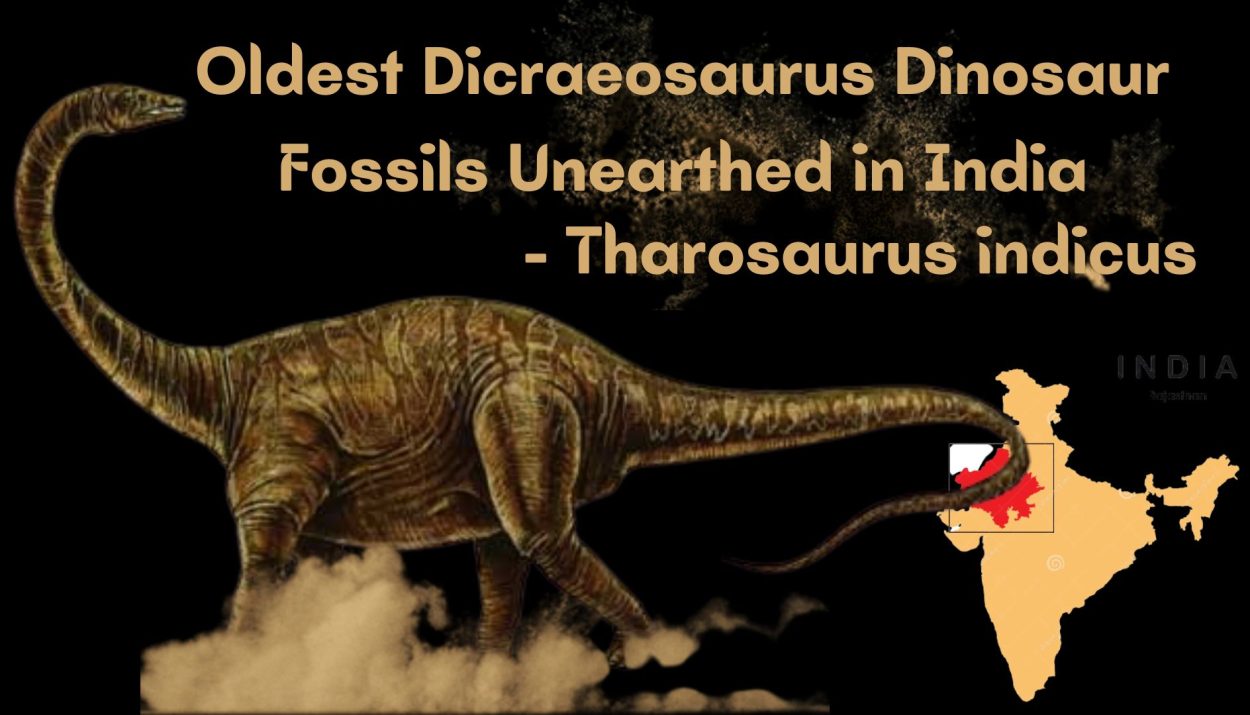The Thar Desert, an expanse of arid beauty in India, has long-held secrets buried beneath its sands. In a recent development, a noteworthy revelation has emerged, with the collaborative efforts of the Geological Survey of India (GSI) and the research teams at IIT Roorkee presenting fresh insights into the ancient past. The recent discovery of the oldest Dicraeosaurus dinosaur fossils in India, known as Tharosaurus indicus, sheds light on the earliest known fossilized remains of this herbivorous creature with an elongated neck, found within the Jaisalmer Formation in western India’s Rajasthan region.
About the Discovery
Unearthed in India for the first time, this species was subsequently designated as Tharosaurus indicus, a name inspired by the Thar desert and its country of origin. The genus name is formed by blending “Tharo,” denoting the ‘Thar desert’ in western India where the primary specimen was discovered, with “saurus,” derived from the Greek term ‘sauros’ signifying lizard. The species’ name is a homage to the nation of origin, namely India. The fossils included parts of vertebrae and ribs.
Dicraeosaurids span from the Middle Jurassic to the Early Cretaceous period and are primarily documented in the Gondwanan continents of Africa and South America. Additionally, there are a few instances of their presence in Laurasian regions, including the USA and China.
Commencing in 2018, the Geological Survey of India (GSI) launched a systematic program of fossil exploration and excavation, resulting in the identification of numerous fossilized bones belonging to a Dicraeosaurid dinosaur. These findings emerged from the Middle Jurassic strata, approximately 167 million years old, situated within the Jaisalmer district of Rajasthan.
The research was documented in ‘Scientific Reports,’ a globally recognized journal published by the creators of the Nature Journal on 4 August 2023.
Unearthing New Clues
Recent excavation efforts have yielded a wealth of new insights into the life and times of Tharosaurus indicus. This finding offers fresh perspectives on the variety of sauropods within the Indian Gondwana region, carrying significant implications for understanding the emergence and spread of this sauropod. This dinosaur is a testament to the incredible diversity that once graced the Thar Desert.
Read- 256 Dinosaur Eggs Found in Narmada Valley
This revelation not only adds to our understanding of the region’s prehistoric inhabitants but also paints a vivid picture of the ecosystems that thrived amidst the sands of time.
The sedimentary formations containing these fossils have been determined to be approximately 167 million years old. This classification positions the newly discovered Indian sauropod as not only the oldest Dicraeosaurid on record but also the oldest Diplodocoid globally, encompassing a broader category that includes Dicraeosaurids and other closely related sauropods.
The newly unearthed findings regarding Tharosaurus indicus in the Thar Desert are a testament to the captivating stories that Earth’s geological history holds. Tharosaurus indicus is more than a collection of bones; it is a bridge that connects us to a bygone era. This newfound knowledge enriches our appreciation of the complexities of the Thar Desert’s history.
References
Tharosaurus indicus- Deccan Herald
Tharosaurus indicus- Deccan Herald
IIT scientists unearth ancient Indian dinosaur- The Economic Times
